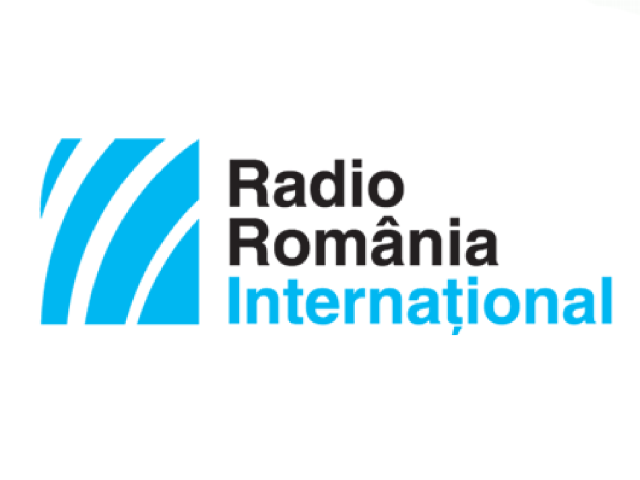Planned economy and its institutions
After the installation of the first communist government in Romania, the Romanian Communist Party began to implement the planned or command economy.

Steliu Lambru, 17.04.2017, 14:17
According to the Marxist economic model, planned or command economy could predict and prevent the crises of capitalism. After the installation of the first communist government in Romania on March 6, 1945, the Romanian Communist Party began to implement this model. The pace of transition from a free market economy to a centralised and planned economy lasted for a few years, but its objectives were well-defined and were eventually carried through.
In practice, however, planned economy not only failed to achieve what it had set out to do, but it also restricted its freedom and made it more rigid, before eventually becoming bankrupt. It all started with the nationalisation or confiscation of the means of production, followed by the adoption of Marxist economy theory and the arrival of Soviet advisors. The fundamental institution was the State Planning Commission, whose president enjoyed the position of minister. Anton Moisescu was the president of the State Planning Commission in the 1950s.
He gave an interview in 1995 in which he recounted a number of measures meant to improve command economy: “My activity at the State Planning Commission focused on rebalancing the development of the country’s economic sectors that had fallen behind, in particular because of the building of the Danube-Black Sea Canal which was consuming so many of our resources. Its construction was unjustified economically speaking, but everybody knew it was only justified in strategic terms, going back to Stalin’s time. So we were given the task to carry out a comprehensive study and come up with proposals to rebalance the national economy. The result was that a number of enterprises and investments that were not urgently necessary at that time were put on hold. There was also a discussion about the Giurgiu bridge between Romania and Bulgaria which we didn’t need all that much. It was much more useful to Bulgaria and the Soviet Union because it provided a direct connection between Bulgaria and the Soviet Union and between Bulgaria and the rest of Europe. Economically speaking, the bridge was not very useful to us and we put a lot of money into it. We were unable to put an end to the building works, which were in their final stage and very little work still remained to be done. We did, however, halted works on the Danube-Black Sea Canal, which was still very important to the Soviets, despite the fact that Stalin had died.”
Economically unrealistic but politically important projects such as the Danube-Black Sea Canal were a burden on the planned economy. Anton Moisescu explains: “Based on the study we made, a discussion started in which the Soviet representatives intervened. At the time, in Romania there still were Soviet advisors and Red army representatives, unfortunately. They still had a heavy say here in Romania. They sent a central commission in order to make an analysis, but, instead, they undertook an investigation. Eventually, they wanted to put the blame on us, claiming that we were incompetent when we made that study. The then party and government did not accept their conclusion and the construction of the canal was ceased because, according to our calculations, the canal was not going to be useful for Romania, under those circumstances, not even in the 30 years after its completion. Today the canal has more importance and in time it will begin to be more profitable, because even now it is not being used at its full capacity. The Danube now provides a link with the entire European continent, but that was not so at that time. The then Romanian leaders did not give up their decision, but they had to make concessions to the Soviet commission and to replace the entire board of the Planning Commission. At first, they replaced all the vice presidents and then the president, Miron Constantinescu.”
Economist and professor Costin Kiriţescu was interviewed by the Center for Oral History of the Romanian Radio Broadcasting Corporation in 1994. According to him, in the context of an authoritarian political regime, a planned and coordinated economy needed an institution such as the State Planning Commission.
Costin Kiriţescu: “The State Planning Commission was a necessary body for a planned, centralized economy, as was the Romanian economy. Such a centralized system could not operate without a plan, and the State Planning Commission was created to elaborate this plan. But the economic life of a country is too complex, there are so many unknown aspects, which even the best planners fail to grasp. Therefore, state planning is one thing, and economic activity proper is another thing. Hence the conflicts that emerged and which turned into political conflicts, because the mentality was that the plan could not be implemented because of the class enemy that was opposed to the fulfillment of the plan. As a conclusion, the State Planning Commission was an organization inherent to a given economic system. All in all, the results were worse and worse, until the economy reached the state it had before the December 1989 revolution. The discrepancy between planning and the reality on the ground was so big that a crisis emerged. And then came the Revolution”.
The experiment of planned economy in Romania came to an end in 1989. Although between 1945 and 1989 the development of several economic sectors was boosted, development could have been achieved with lower costs than those set as part of the planned economy.





























